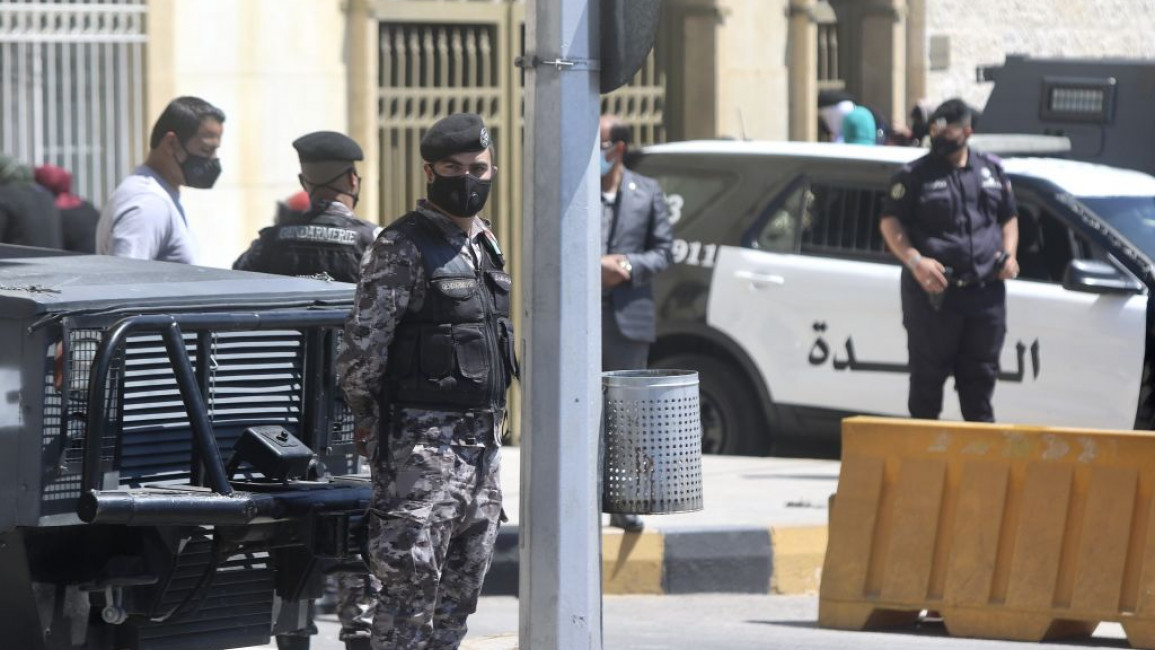Jordan rejects US request to release ex-Jordanian official accused of plot against king
Jordan has rejected a U.S. request to release a former top Jordanian official imprisoned in an alleged plot against the Western-allied monarchy, according to his family and lawyer.
Bassem Awadallah, a dual Jordanian-American citizen, has spent over two years in Jordanian prison after being convicted of plotting against King Abdullah II with the king’s own half-brother. He denies the charges, and his lawyers say he was convicted in a sham trial that lacked due process.
The U.S. State Department requested he be released on humanitarian grounds in March, according to his family and his lawyer. The request came just weeks after he began a hunger strike to protest his imprisonment, resulting in his hospitalization. Jordan rebuked the request earlier this month, according to John Ashcroft, Awadullah's lawyer.
Ashcroft, a former U.S. attorney general, sharply criticized the refusal, noting that Jordan receives considerable aid from the US and should heed its requests. The U.S. gives over $1 billion a year in aid to Jordan, according to the State Department.
“When our government requested improperly detained fellow citizen, Bassem Awadallah, be released, King Abdullah’s regime without reason said no,” said a statement from Ashcroft's office. “Our government has been able to convince enemy states to release unjustly detained US citizens. It should be able to convince the king of Jordan to do the same.”
The State Department would not confirm whether it had requested Awadallah's release.
In a statement, it said the U.S. Embassy in Amman has been following the case closely since Awadallah’s imprisonment and visits him each month. It also said it is monitoring Awadallah's health, without giving any details on his condition.
Jordan's Foreign Ministry declined comment.
Jordan is a close Western ally that hosts hundreds of thousands of Mideast refugees and has long been seen as an island of stability in a volatile region. But there also are deep-rooted economic and social challenges in the country, which borders Israel, the Israel-occupied West Bank, Syria, Iraq and Saudi Arabia.
Awadallah, who once served as a top adviser to the king, and Sharif Hassan bin Zaid, a member of the royal family, were found guilty of sedition and incitement two years ago and sentenced to 15 years in prison.
Awadallah was alleged to have conspired with Prince Hamzah, the king’s half-brother, and to have sought foreign assistance in a plot against Abdullah. Hamzah remains under house arrest.
Awadallah was convicted in a closed trial that lasted just six sessions in a military court. The court denied requests by defense lawyers to call witnesses, and prosecutors shared only purported transcripts, but not original audio recordings, from surveillance of the alleged plotters.
Ashcroft said both the trial and the kingdom's refusal of the U.S. request showed a lack of due process.
“It is impossible to believe that any responsible, careful, justice-oriented consideration was given by members of King Abdullah II’s regime that resulted in this mockery of internationally-accepted judicial process and arbitrary denial of the U.S. State Department’s request,” Ashcroft wrote.
Abdullah and Hamzah are sons of King Hussein, who ruled Jordan for nearly half a century before his death in 1999. Abdullah appointed Hamzah as crown prince upon his succession but stripped him of the title in 2004.


![President Pezeshkian has denounced Israel's attacks on Lebanon [Getty]](/sites/default/files/styles/image_684x385/public/2173482924.jpeg?h=a5f2f23a&itok=q3evVtko)



 Follow the Middle East's top stories in English at The New Arab on Google News
Follow the Middle East's top stories in English at The New Arab on Google News


